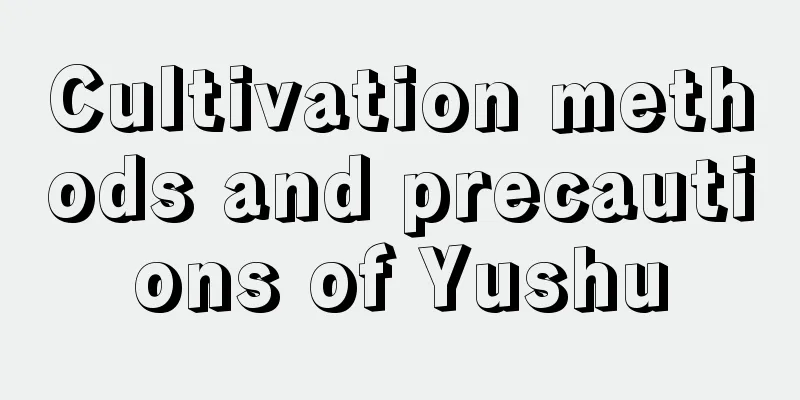What are the cultivation methods and precautions of hibiscus flowers?

Hibiscus growth habitsHibiscus likes to grow in a warm and humid environment. It is not drought-tolerant or cold-tolerant. The soil suitable for its growth is moist and well-drained. In addition, hibiscus is a plant that likes light very much. When we grow it, we need to pay more attention to whether its light intake is reached. Hibiscus cultivation methodSoil: Hibiscus likes to grow in acidic soil. It is necessary to use sandy soil with good drainage and add some leaf mold or phytosanitary fertilizer to ensure the acidity of the soil. Temperature: Hibiscus is a flower that loves light very much, so the temperature should be kept above 12℃ when growing hibiscus. Light: Normally make sure it has sufficient sunlight, but avoid direct sunlight that is too strong. Provide about 5 to 8 hours of sufficient light every day. Watering: Be sure to keep the soil in the hibiscus pot moist, especially in the hot summer, watering it more is beneficial to the growth of the hibiscus. Fertilization: Top dressing is mainly required during the growth and flowering period of hibiscus. You can mix phosphorus and potassium fertilizers in proportion, and then apply the decomposed liquid fertilizer diluted with water to the hibiscus. It should be applied once every 10 days or so, and fertilization should be stopped in winter. Pruning: Cut short the branches and leaves that are too long on the plant in time, and control its growth rate to maintain its beautiful columnar shape. The plant should be well ventilated and light-permeable for better growth. Hibiscus cultivation precautionsHibiscus is usually repotted in spring, not in autumn, because the weather is cooler in autumn, which will affect the survival rate of hibiscus repotting. Repotting hibiscus is also relatively simple. Just lay it flat and knock out the soil. After putting it in the pot, you can trim the branches and leaves to reduce water evaporation from the branches and leaves and lock in moisture. |
<<: What are the breeding methods and precautions for Milan?
Recommend
How much does a plant of agave cost? How much does it usually cost?
1. How much is one plant? Its price is not fixed....
Can Monstera be propagated by cuttings? How to propagate by cuttings?
1. Can cuttings be used? Monstera can be propagat...
Can African jasmine be exposed to the sun?
Can African jasmine be exposed to the sun? Africa...
Does Lupin prefer shade or sun?
Does Lupin prefer shade or sun? Lupine is easy to...
Can roses be planted in pots?
Farming methods Soil: The best soil is 2 parts ri...
Is herbaceous flower easy to grow? Cultivation methods and precautions
Are herbaceous flowers easy to grow? Herbaceous f...
Can I eat coriander during breastfeeding? Can pregnant women eat it?
1. Can you eat coriander during breastfeeding? It...
Why don't orchids bloom?
No flowering due to own reasons Small orchid seed...
How to grow Osmanthus fragrans in spring
1. Watering Osmanthus fragrans is relatively drou...
How to care for and manage small-leaf red sandalwood?
Small-leaf red sandalwood is considered a high-en...
How to plant a magnolia tree
1. Water Magnolia trees are afraid of both drough...
How often should you water your rose potted plants?
Introduction to Rose Potted Plants Potted roses l...
What are the cultivation methods and precautions of the boss tree?
How to cultivate the Laoshuang tree The origin of...
Can chives be fertilized with human urine? (Is it better to use wood ash or human urine as topdressing for chives?)
Is it better to use human urine or wood ash as fe...
Is it good to use rice water to water flowers? The correct way to water flowers
1. Is it good to water the flowers? Rice water co...









